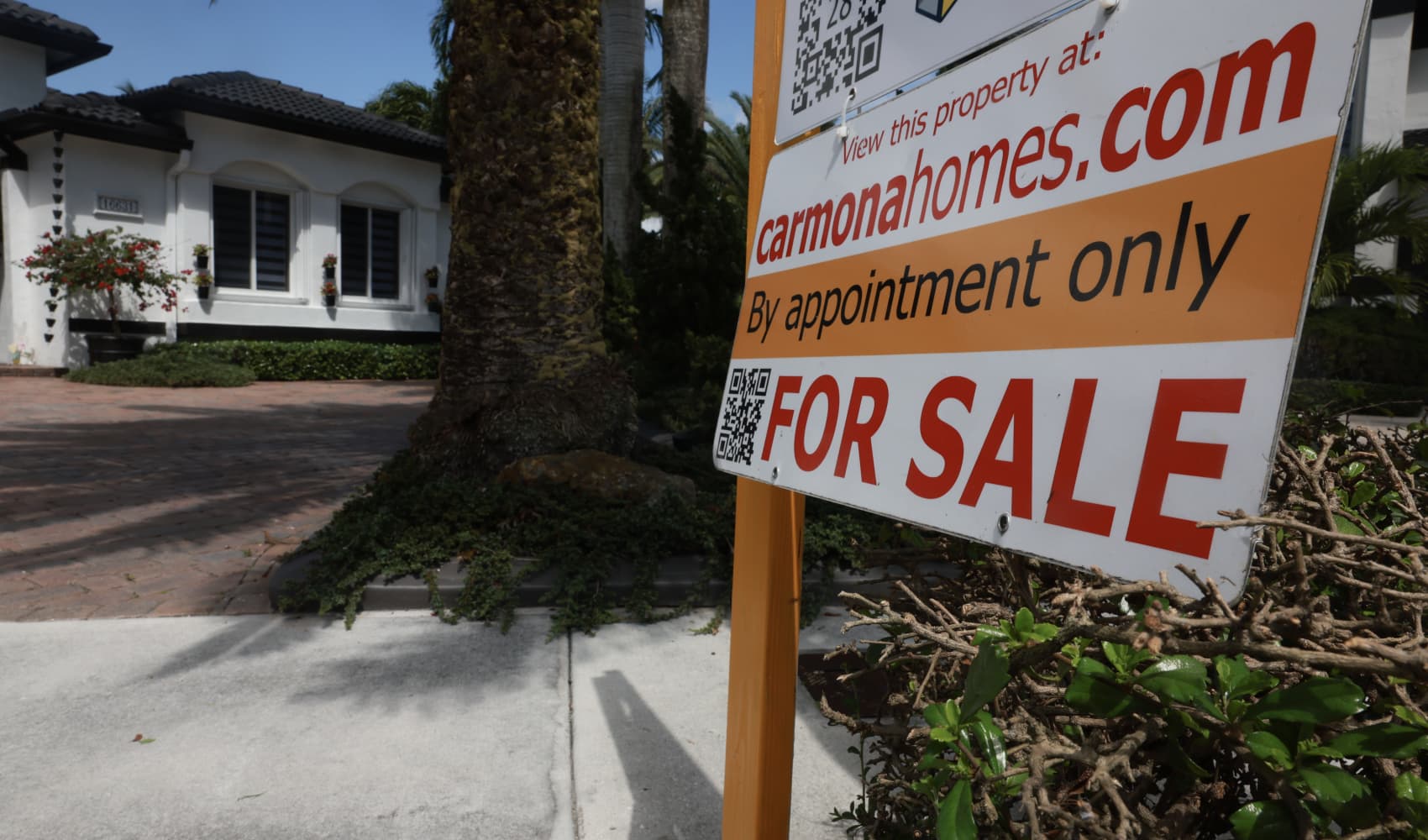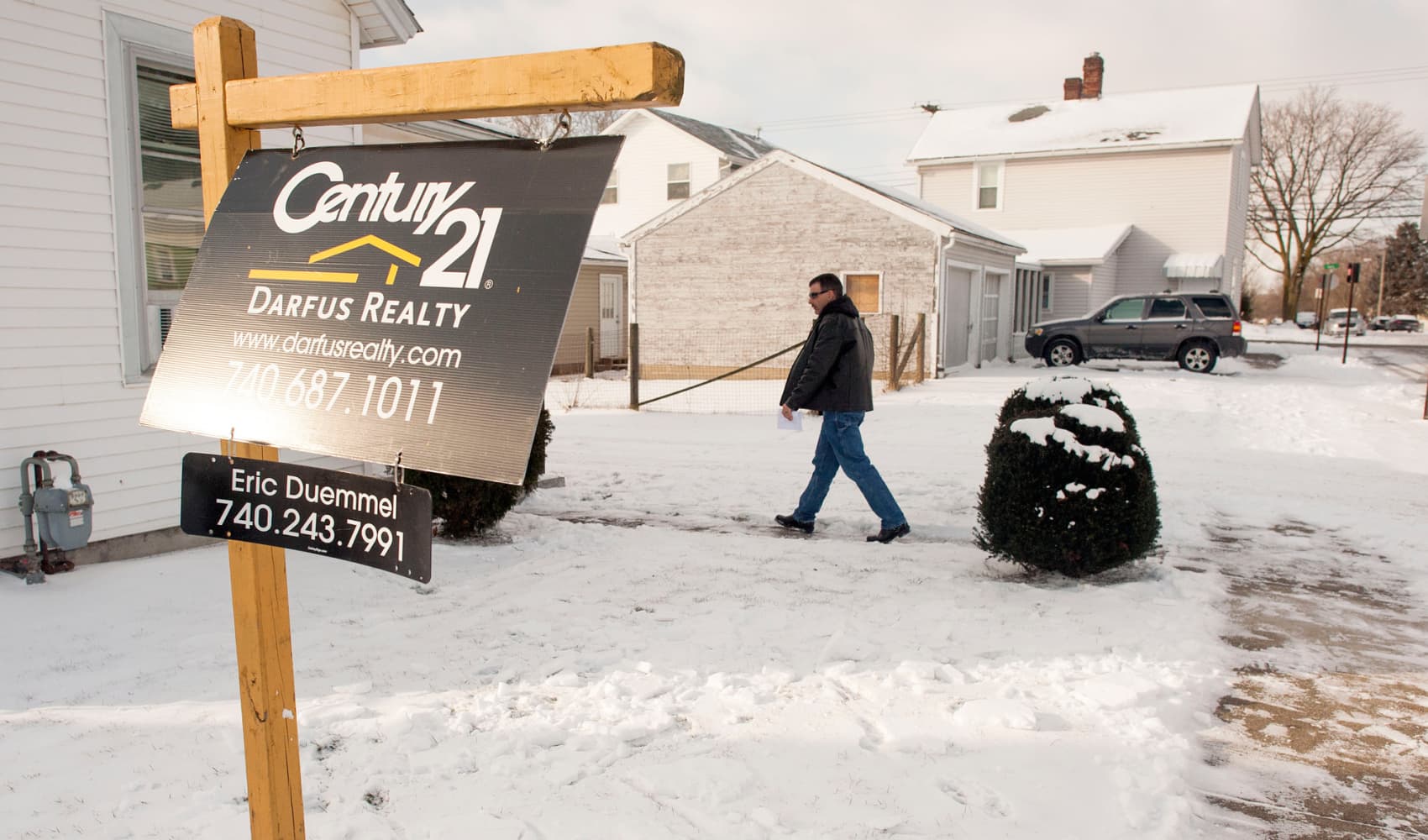High interest rates have left many home buyers on the sidelines waiting for rates to decrease. But if you're one of those buyers, you might not need to wait any longer.
Assumable mortgages allow buyers to purchase their dream home with low rates. It's an option that was a game changer for Sara and Terry Diamond, who spent months searching for the right fit when they were ready to purchase their first home.
Looking for space in the form of a bigger kitchen and a bigger lot, they settled on a house with a big yard for their kids. They finances it with an interest rate of 3.125%.
"Anyone I've told, you know, close work friends that work next to me and stuff like that, they think I'm lying to them," said Terry Diamond. "They're like, '3%?'"
We've got the news you need to know to start your day. Sign up for the First & 4Most morning newsletter — delivered to your inbox daily. >Sign up here.
"'Did you mix those numbers up?'" Sara joked.
"I'm like, 'assumable loan,'" Terry said.
An assumable mortgage, in basic terms, means a qualified buyer takes over the seller's loan. That includes the interest rate, payment schedule and loan balance.
Some of you may recognize an assumable loan as a vestige of double-digit interest rates. In 1981, buyers were looking at 18%. But today, the Diamonds' real estate agent says houses with assumable mortgages get lots of attention.
"It was a huge selling point," said Chasatee Carbaugh, their agent with M&D Real Estate. "The reason they chose this home."
As with any major financial decision, Carbaugh explains there is a list of trade-offs to consider.
The buyer would typically have a bigger down payment. For example, if someone is buying a house for $400,000, taking over the seller's assumable mortgage with a $300,000 balance, the buyer would need to cover that $100,000 difference.
Carbaugh says it can be doable for owners who are coming out of a home that saw an increase in its value.
"Any home buyers that maybe bought their home when the market was great and everybody was happy, you know, between late 2018 to 2020, have a ton of equity."
Another important distinction: Conventional mortgages are not generally assumable, other than very specific circumstances like a spouse assuming one in a divorce.
Only certain government-backed VA, FHA, or USDA loans can be transferred to a new buyer.
A new owner doesn't have to be a veteran to assume a VA loan, but the seller should consider their VA entitlement. It would be tied up as long as the buyer keeps the old loan.
With FHA loans, real estate agent and broker Jared Tye points out that buyers typically have to pay a mortgage insurance premium, also known as an MIP.
"[It] never hurts to have your agent call and say, hey, what kind of loan do they have on the current house? Let's see if we can get creative," said Tye.
It worked for the Diamonds, who are now moving into a precious find.
"We had no idea what an assumable loan was before we dove into this," said Sara Diamond.
"We have a house that we can actually afford, that we can afford to upgrade throughout the years because we're not spending $4,000 a month on a mortgage," Terry Diamond said.
As with any big decision, read the fine print and do your research. It's also a good idea to get qualified help.
Tye told News4 that a seller would want to ensure the assumption is approved by the lender to confirm they're not on the note, if the new owner later defaults on their payments.
Buyers also have to meet certain criteria to qualify.
Finally, it may extend the amount of time and the fees involved in closing on the house. Carbaugh, the Diamonds' agent, says it took them a little over 60 days to close on their home.




